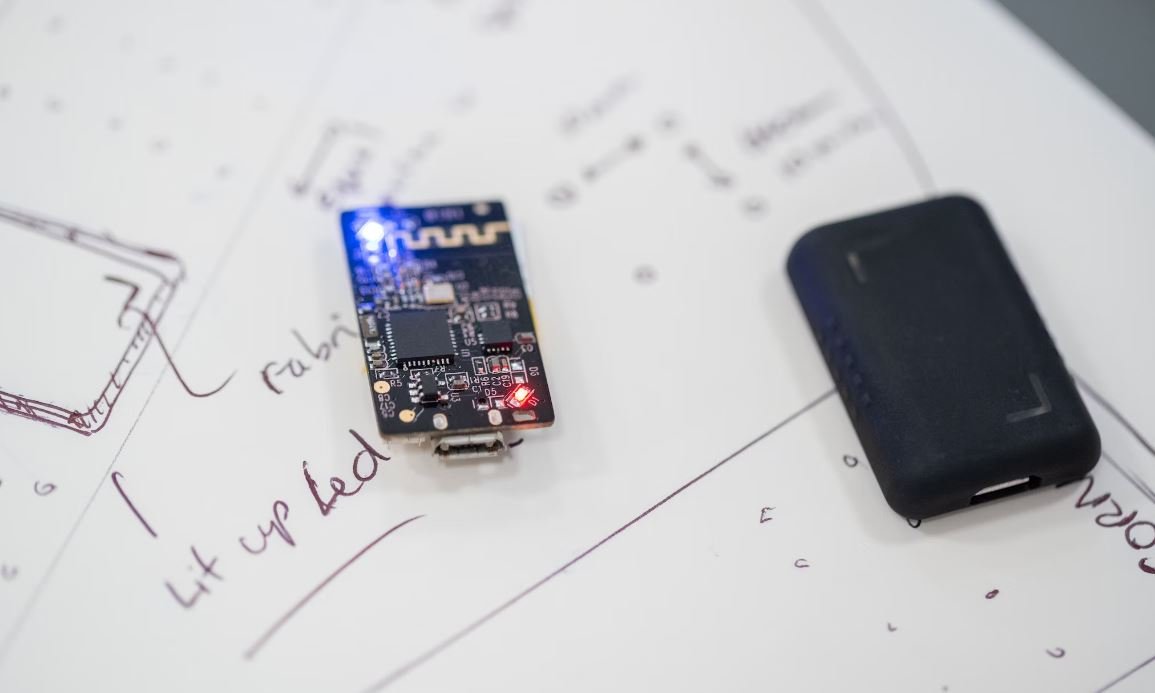Journalist vs. Analyst
As information becomes more readily available and the demand for news and insights increases, more individuals are entering the fields of journalism and analysis. While there are overlaps in their skills and responsibilities, there are distinct differences between a journalist and an analyst that set them apart.
Key Takeaways:
- Journalists focus on reporting and conveying news objectively.
- Analysts interpret information and provide insights and opinions.
- Journalists gather facts and verify sources for accurate reporting.
- Analysts use data and research to formulate their insights.
Journalists play a crucial role in providing the public with credible and unbiased news. They are trained to gather information, investigate events, and present factual accounts of current happenings. Journalists strive to remain neutral and present multiple perspectives on any given topic. They aim to highlight the truth behind the news.
Analysts, on the other hand, focus on interpreting information and offering their insights and opinions. They analyze data, trends, and events to provide a deeper understanding of a particular subject. Analysts often specialize in specific areas and use their expertise to offer nuanced perspectives. They uncover patterns and trends hidden within the data.
The Differences in Practice:
While both journalists and analysts deal with information and its interpretation, their approaches and methodologies vary.
- Research: Journalists conduct thorough research to gather facts and credible sources for reporting. They aim to present accurate and verified information to the public.
- Expertise: Analysts develop expertise in specific fields and utilize their knowledge to provide insights and informed opinions. They often rely on data and use various analytical tools.
- Perspective: Journalists aim to remain neutral and present a balanced view by incorporating diverse opinions. They give readers the materials to form their own opinions.
- Writing Style: Journalists adopt a more straightforward and concise writing style to deliver news in an understandable manner. Their focus is on clarity and brevity.
Journalists are the watchdogs of society, providing news and information for the public to make informed decisions.
Comparing Skillsets:
The table below outlines the key skills and qualifications typically associated with journalists and analysts:
| Journalist | Analyst | |
|---|---|---|
| Skills | Investigative journalism, interviewing, fact-checking | Data analysis, critical thinking, research |
| Qualifications | Journalism degree, writing experience, ethics training | Background in relevant field, research skills, analytical mindset |
Journalist vs. Analyst: So, Who Wins?
It’s not a matter of one profession being superior to the other, but rather recognizing that each has its unique role and purpose. Both journalists and analysts contribute in valuable ways to the dissemination of information and shaping public opinion.
Together, they serve to shed light on different aspects of current events, with journalists providing news and facts, and analysts offering insights and interpretations.
Breaking Down Stereotypes:
Here are some common misconceptions about journalists and analysts:
- Journalists only report news; they do not analyze it.
- Analysts only offer opinions; they do not report facts.
Understanding the distinct roles of journalists and analysts enables us to appreciate their complementary contributions and the importance of accurate information for an informed society.
Comparing Job Outlook:
The following table highlights the projected job growth for journalists and analysts over the next decade:
| Journalist | Analyst | |
|---|---|---|
| Job Growth | Declining: -11% (source: Bureau of Labor Statistics) | Growing: 14% (source: Bureau of Labor Statistics) |
Embracing the Coexistence:
Both journalists and analysts play vital roles in society’s access to information. They enhance our understanding by delivering news, insights, and opinions in different ways. By recognizing their respective strengths, we can have a more comprehensive understanding of the events shaping our world.
After all, the power of knowledge lies in its diversity.

Common Misconceptions
Journalists and Analysts are the same
There is a common misconception that journalists and analysts have the same roles and responsibilities. While both professions are related to gathering and disseminating information, they serve different functions and have distinct skill sets.
- Journalists focus on reporting news as it happens.
- Analysts, on the other hand, analyze and interpret data to provide insights and predictions.
- Journalists gather information through interviews and research, while analysts often rely on numerical data and statistics.
Journalists are biased
Another misconception is that journalists are inherently biased in their reporting. While it is true that some journalists may have personal biases, reputable journalists strive to provide fair and unbiased information to their audience.
- Journalists adhere to ethical guidelines and principles of journalism, such as fairness, accuracy, and impartiality.
- They strive to present different perspectives and provide a balanced view of the topic they are covering.
- Journalists also undergo rigorous fact-checking processes to ensure the accuracy of their reporting.
Analysts only provide opinions
There is a misconception that analysts only offer subjective opinions without any factual basis. However, experienced analysts utilize their expertise and research to provide evidence-based insights and predictions.
- Analysts use various quantitative and qualitative methods to collect and analyze data.
- They assess historical data and trends to identify patterns and make informed predictions about future events or market conditions.
- Analysts provide valuable insights that can be used for decision-making in various fields, such as finance, economics, and marketing.
Journalists and Analysts never collaborate
Some people mistakenly believe that journalists and analysts work in isolation from each other and never collaborate. However, there are instances when these professionals collaborate to produce comprehensive and accurate reports.
- Journalists may interview and consult with analysts to gain expert insights and opinions.
- Analysts, in turn, can provide journalists with valuable data and analysis that enhances their reporting.
- Collaboration between journalists and analysts ensures a more well-rounded and informative presentation of a particular issue or topic.
Journalists and Analysts do not require domain expertise
Contrary to the misconception that journalists and analysts do not need domain expertise, both professions highly benefit from having specialized knowledge and understanding within their respective fields.
- Journalists with domain expertise can better grasp the complexities of the subjects they cover and ask more insightful questions during interviews.
- Analysts who possess domain expertise can provide more nuanced interpretations of data and better understand the context in which they are operating.
- Domain expertise allows both journalists and analysts to deliver more accurate and insightful information to their audience.

Job Requirements
Journalist and analyst roles differ in terms of job requirements. Journalists typically need strong writing and communication skills, while analysts require expertise in data analysis and critical thinking. The table below highlights the specific skills and qualifications for each role:
| Journalist | Analyst |
|---|---|
| Strong writing skills | Data analysis expertise |
| Effective interviewing skills | Critical thinking abilities |
| Research skills | Statistical knowledge |
| Ability to meet tight deadlines | Programming skills (Python, R, etc.) |
Type of Work
While both journalists and analysts deal with information, their work differs in terms of focus and purpose. Journalists aim to inform and engage the public, while analysts focus on interpreting data to provide insights and recommendations. The following table illustrates the type of work associated with each role:
| Journalist | Analyst |
|---|---|
| Researching news stories | Conducting data analysis |
| Interviewing sources | Interpreting statistical data |
| Writing articles or reports | Creating data visualizations |
| Fact-checking information | Identifying trends and patterns |
Work Environment
The work environment for journalists and analysts can differ significantly. Journalists often work in diverse settings, ranging from newsrooms to field assignments, while analysts are commonly found in corporate or research environments. The table below highlights the differences in work environments between the two roles:
| Journalist | Analyst |
|---|---|
| Newsrooms | Corporate offices |
| Field assignments | Data analysis labs |
| Press conferences | Market research agencies |
| Remote locations | Academic institutions |
Required Education
Education requirements vary for journalists and analysts. While some journalists enter the field with practical experience, others pursue degrees in journalism, communications, or related fields. Analysts, on the other hand, often possess degrees in fields such as mathematics, economics, or statistics. The table below showcases the typical educational background for each role:
| Journalist | Analyst |
|---|---|
| Journalism degree | Mathematics degree |
| Communications degree | Economics degree |
| English or literature degree | Data science or statistics degree |
| Practical experience | Background in business analytics |
Salary Range
The remuneration for journalists and analysts can vary based on factors like experience, location, and industry. The table below gives an overview of the average salary ranges for both roles:
| Journalist | Analyst |
|---|---|
| $40,000 – $80,000 per year | $60,000 – $120,000 per year |
Impact on Society
The impact of journalists and analysts on society stems from the nature of their work. Journalists play a critical role in providing unbiased news and information, fostering transparency and accountability. Analysts contribute by offering insights that influence decision-making in various sectors. The table below outlines the social impact of both roles:
| Journalist | Analyst |
|---|---|
| Informing the public | Influencing decision-making |
| Fostering transparency | Providing insights for problem-solving |
| Holding power accountable | Guiding strategic initiatives |
| Shaping public opinion | Policy formulation support |
Job Outlook
Understanding the employment prospects for journalists and analysts is essential for those considering these career paths. While the media industry is rapidly evolving, data analysis roles continue to grow in demand. The table below provides insights into the job outlook for both professions:
| Journalist | Analyst |
|---|---|
| Growing demand for multimedia journalism | Increasing need for data-driven decisions |
| Digital media opportunities | Trends towards automation and AI |
| Challenging competition | Wide range of industry applications |
| Adaptability to new media platforms | Strong market presence |
Required Skills
While both journalists and analysts require specific skills, their skill sets differ due to the nature of their work. This table highlights the key skills necessary for success in each role:
| Journalist | Analyst |
|---|---|
| Investigative journalism | Data visualization |
| Interviewing techniques | Data modeling |
| Storytelling and engaging writing | Statistical analysis |
| Fact-checking and verification | Problem-solving |
Conclusion
Journalists and analysts play distinct but important roles in today’s information-driven society. While journalists focus on delivering news and engaging the public, analysts leverage data to provide valuable insights and support decision-making processes. The career paths require different skill sets, educational backgrounds, and work environments. However, both professions have a significant impact on society by fostering transparency, shaping opinions, and influencing critical decisions. As the media landscape and data-driven decision-making continue to evolve, both journalism and data analysis offer promising opportunities for individuals passionate about making a difference in their respective fields.
Frequently Asked Questions
What is the difference between a journalist and an analyst?
A journalist is a professional who collects, investigates, and reports news and events to the public through various media platforms. On the other hand, an analyst is an expert who studies and analyzes data, trends, and patterns to provide insights and support decision-making in specific areas such as finance, technology, or business.
What are the primary responsibilities of a journalist?
A journalist’s primary responsibilities include researching, conducting interviews, observing events, writing articles, and reporting news stories in an objective and unbiased manner. They aim to inform and educate the public about current events, issues, and topics of interest.
What are the primary responsibilities of an analyst?
Primary responsibilities of an analyst include gathering and interpreting data, conducting market research, identifying trends, preparing reports, and providing recommendations based on analysis. Analysts help businesses or organizations make informed decisions by providing insights and strategic advice.
What skills are important for a journalist?
Important skills for a journalist include excellent writing and communication skills, critical thinking, research abilities, interviewing skills, objectivity, attention to detail, and the ability to work under tight deadlines.
What skills are important for an analyst?
Important skills for an analyst include strong analytical and problem-solving abilities, data interpretation, research skills, mathematical and statistical knowledge, attention to detail, ability to work with complex data sets, and proficiency in data analysis software and tools.
What educational background is required to become a journalist?
While there is no specific educational requirement, many journalists hold a bachelor’s degree in journalism, communications, or a related field. Some may also pursue a master’s degree in journalism for further specialization.
What educational background is required to become an analyst?
To become an analyst, a bachelor’s degree in a relevant field such as finance, economics, business administration, or statistics is often required. Some analysts may also have advanced degrees such as a Master of Business Administration (MBA) or a Master of Science (MS) in their area of specialization.
What are the work environments like for journalists?
Journalists work in various environments such as newsrooms, offices, press conferences, outdoors for on-the-ground reporting, or in remote locations for investigative journalism. They may also travel to cover stories or events.
What are the work environments like for analysts?
Analysts typically work in office environments, often as part of a team within a specific industry or organization. They may work regular business hours, but depending on the nature of their work, they may also need to work additional hours to meet deadlines or during periods of high company activity.
Are there any ethical considerations for journalists and analysts?
Yes, both journalists and analysts have ethical considerations. Journalists should strive for accuracy, fairness, and objectivity in their reporting while respecting privacy and confidentiality. Analysts should ensure the integrity and reliability of their analysis and recommendations, avoiding conflicts of interest and disclosing any relevant information.




